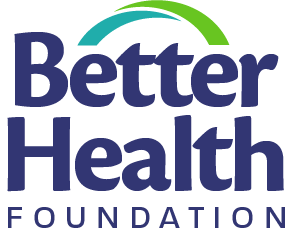EveryChild Field Trip
“I could never do what you do.”
I was a professional fundraiser for 37 years and heard those words spoken to me by friends, family members, and general acquaintances. (For the record, there are far worse things than a career spent in the company of joyful donors and grateful recipients!)
Admittedly, I am guilty of using that phrase when I meet someone who I believe has a tough day job. Tough doesn’t begin to describe the difficult work being done by the unsung heroes at EveryChild’s Mississippi Valley Child Protection Center.
I was grateful for the drive to Muscatine the morning of my CPC visit. I used those mental miles to prepare myself for the 90-minute tour and introduction to the world of child abuse allegations, medical exams and forensic interviews.
Thankfully, the CPC team is adept at creating a calm, welcoming environment for guests and the children and families they serve.
Their offices are located in a large home dating back to the late 1800s. Kids’ artwork lines the stairwell to the second floor room where children are able to speak privately with a trained forensic interviewer about alleged abuses. Caregivers see the space and are informed of the process, but they do not watch the interview.
Law enforcement professionals in an adjoining room witness interviews via a camera. The single-session interviews are recorded, so the children are sharing their concerns just one time.
As Program Director Carmen Galvin explained, the process prevents children from being re-traumatized. Before this system was in place, a child might tell a teacher about possible abuse or being a witness to violence, then the child would repeat the story to a principal, and then to law enforcement, and so on.
Children also make a stop to visit with Medical Director Kara Castel. This mother of four and former Labor and Delivery nurse is a trained pediatric/adolescent Sexual Assault Nurse Examiner. Her job is to gather evidence and ensure for the overall health of the child.
Kara speaks privately to the child, and may conduct a general physical exam, if warranted. I was surprised to learn from Kara that evidence has shown that 90% of the time, nothing is found on a physical exam. Because the human body heals so quickly, signs of abuse may have disappeared by the time the child sees Kara, which might be weeks, months or even years after the event.
The team, which also includes a family advocate, reserves Fridays for paperwork and rare emergent visits. I imagine this time is critical to their mental and emotional health as well. There is never a cost to caregivers, but working daily with children who have been in harm’s way would extract a heavy toll on the staff.
In 2021, the CPC lost a state grant that was nearly 80% of its budget, not from disciplinary action, diminished value or quality of services. The current Iowa model is limited in the number of child advocacy centers it can fund. In musical chairs fashion, they were the odd man out. A BHF grant is supporting their Forensic Interviewer and Medical Director positions.
In the meantime, the CPC is building community support, so they can increase the effectiveness of child abuse identification, investigation, prosecution and treatment. It’s a tough job… one that I wish didn’t have to exist.
